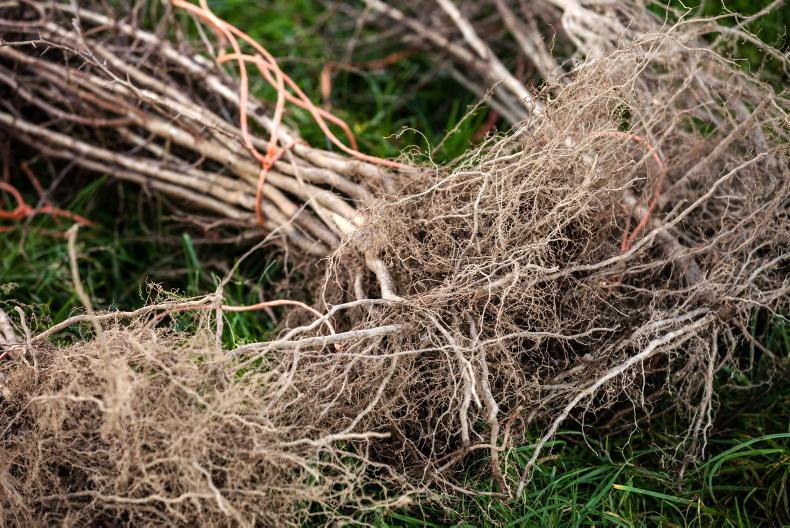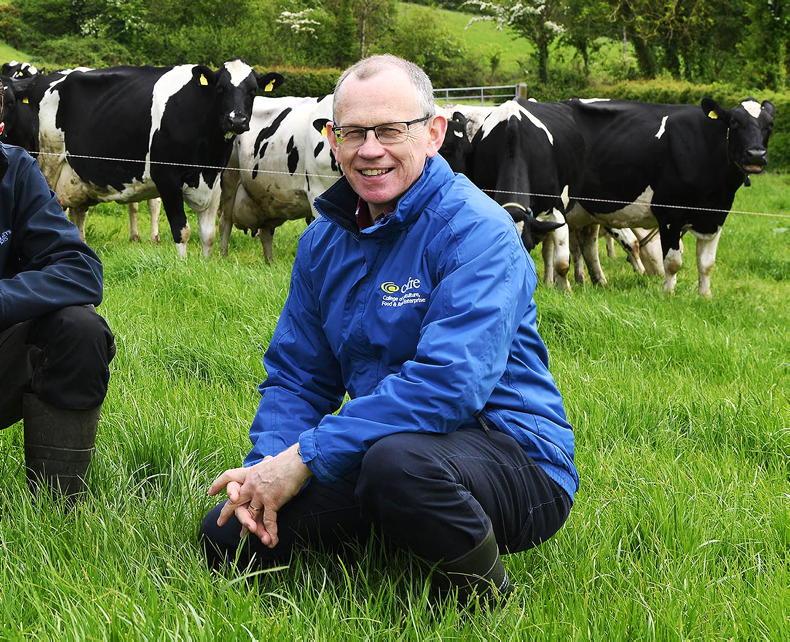Up to 6,500 farm inspections will take place every year according to the new River Basin Management Plan 2018-2021, launched by the Department of Housing this week.
Farming activities are the leading cause of 53% of the 1,460 water bodies that are classified ‘at risk’ and, as
exports increase under FoodWise 2025, the international image of a sustainable, green, Irish food market is now intrinsically linked to our water quality.
Inspection drive
The inspection drive will see Department of Agriculture and local authority inspectors, trained by the Department, target farms that “have not previously been visited or that have not been inspected in a number of years”.
Local authority inspectors will have the power to refer a case to the Department to apply a financial penalty if farmers are found to be in breach of regulations.
Cavan, Monaghan and Meath are noted for having a problem with excess phosphorus, while in the south of the country, the impact of excess nitrogen on estuaries is a concern. Areas flagged as having poor water quality will have a higher risk of nitrates inspections.
Advisers
A new Agricultural and Sustainability and Support Programme (ASSP) is also in the process of being rolled out from June this year.
The programme will deploy 20 specially trained Teagasc
advisers to visit farmers, free of charge, in 190 areas nationwide that have been highlighted
“areas for action”. In addition, dairy co-ops are providing up to 10 advisers under the Dairy Sustainability Initiative to specifically support dairy farmers to focus on improving water quality.
“These advisers will go out to farmers after streams and rivers have been walked by local authority staff … it’s just saying to people, look, we can see there’s an issue here, and we’ll help you to change,” Jack Nolan from the Department’s nitrates division said.
Nationally, the Department of Housing has outlined that: “53 water supplies with pesticide exceedances will be investigated, and where necessary follow-up action will be taken.”
Compulsory registration and training of professional users of pesticides is in effect and, to date, more than 24,000 farmers have been trained. Four catchments have been prioritised by Irish Water and the EPA – Abbeyfeale, Longford Central, Kilkenny Troysland and Newcastle West. “The Department of Agriculture is also considering the potential use of extended no-spray buffer zones in these catchments.”
Excess phosphorus and nitrogen has been highlighted as having a key impact on water quality, and farm inspections are likely to be linked to poor water quality tests.
“The inter-agency/inter departmental Water Quality and Agriculture working group will ensure increased targeting of inspections based on water-quality results,” according to the River Basin Management Plan.
In addition, an Agricultural Catchments Programme is being unrolled, which will work with 320 farmers, and hopes to prove that a reduction in phosphorus, does not lead to a reduction in production.
Read more
River Basin Management Plan for Ireland welcomed by IFA
Fertiliser planning to build soil fertility
Up to 6,500 farm inspections will take place every year according to the new River Basin Management Plan 2018-2021, launched by the Department of Housing this week.
Farming activities are the leading cause of 53% of the 1,460 water bodies that are classified ‘at risk’ and, as
exports increase under FoodWise 2025, the international image of a sustainable, green, Irish food market is now intrinsically linked to our water quality.
Inspection drive
The inspection drive will see Department of Agriculture and local authority inspectors, trained by the Department, target farms that “have not previously been visited or that have not been inspected in a number of years”.
Local authority inspectors will have the power to refer a case to the Department to apply a financial penalty if farmers are found to be in breach of regulations.
Cavan, Monaghan and Meath are noted for having a problem with excess phosphorus, while in the south of the country, the impact of excess nitrogen on estuaries is a concern. Areas flagged as having poor water quality will have a higher risk of nitrates inspections.
Advisers
A new Agricultural and Sustainability and Support Programme (ASSP) is also in the process of being rolled out from June this year.
The programme will deploy 20 specially trained Teagasc
advisers to visit farmers, free of charge, in 190 areas nationwide that have been highlighted
“areas for action”. In addition, dairy co-ops are providing up to 10 advisers under the Dairy Sustainability Initiative to specifically support dairy farmers to focus on improving water quality.
“These advisers will go out to farmers after streams and rivers have been walked by local authority staff … it’s just saying to people, look, we can see there’s an issue here, and we’ll help you to change,” Jack Nolan from the Department’s nitrates division said.
Nationally, the Department of Housing has outlined that: “53 water supplies with pesticide exceedances will be investigated, and where necessary follow-up action will be taken.”
Compulsory registration and training of professional users of pesticides is in effect and, to date, more than 24,000 farmers have been trained. Four catchments have been prioritised by Irish Water and the EPA – Abbeyfeale, Longford Central, Kilkenny Troysland and Newcastle West. “The Department of Agriculture is also considering the potential use of extended no-spray buffer zones in these catchments.”
Excess phosphorus and nitrogen has been highlighted as having a key impact on water quality, and farm inspections are likely to be linked to poor water quality tests.
“The inter-agency/inter departmental Water Quality and Agriculture working group will ensure increased targeting of inspections based on water-quality results,” according to the River Basin Management Plan.
In addition, an Agricultural Catchments Programme is being unrolled, which will work with 320 farmers, and hopes to prove that a reduction in phosphorus, does not lead to a reduction in production.
Read more
River Basin Management Plan for Ireland welcomed by IFA
Fertiliser planning to build soil fertility








SHARING OPTIONS